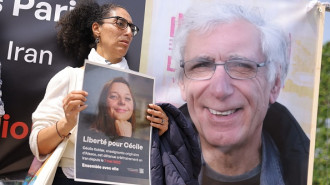"The next few years are probably the most important in human history," Debra Roberts, head of the Environmental Planning and Climate Protection Department in Durban, South Africa, and an Intergovernmental Panel for Climate Change co-chair, told AFP.
The 400-page report says that global warming has marched forward at a pace much faster than humanity's efforts to tame it.
Before the Paris Agreement was inked in 2015, nearly a decade of scientific research rested on the assumption that 2C was the guardrail for a climate-safe world.
The IPCC report, however, shows that global warming impacts have come sooner and hit harder than predicted.
The report added that to have at least a 50/50 chance of staying under the 1.5C cap, the world must, by 2050, become "carbon neutral".
Drawing from more than 6,000 recent scientific studies, the report laid out four pathways to that goal.
The most ambitious would see a radical drawdown in energy consumption coupled with a rapid shift away from fossil fuels and a swift decline in CO2 emissions starting in 2020. It would also avoid an "overshoot" of the 1.5C threshold.
A contrasting "pay later" scenario compensates for a high-consumption lifestyles and continued use of fossil fuels with a temporary breaching of the 1.5C ceiling.
It depends heavily on the use of biofuels. But the scheme would need to plant an area twice the size of India in biofuel crops, and assumes that some 1,200 billion tonnes of CO2 -- 30 years' worth of emissions at current rates -- can be safely locked away underground.
But in either case limiting global warming to 1.5C comes with a hefty price tag: some $2.4 trillion of investments in the global energy system every year between 2016 and 2035, or about 2.5 percent of world GDP.
And major world powers like the United States, which under President Donald Trump have walked away from the 2015 Paris climate accord, have yet to pursue the sweeping change the IPCC calls for.
Follow us on Twitter: @The_NewArab





 Follow the Middle East's top stories in English at The New Arab on Google News
Follow the Middle East's top stories in English at The New Arab on Google News

![The law could be enforced against teachers without prior notice [Getty]](/sites/default/files/styles/image_330x185/public/2178740715.jpeg?h=a5f2f23a&itok=xMdFOAIF)
